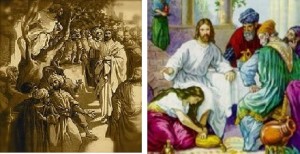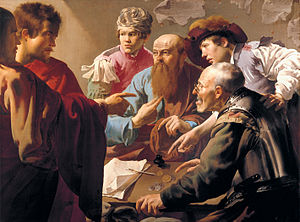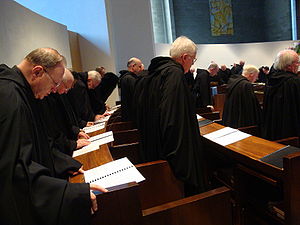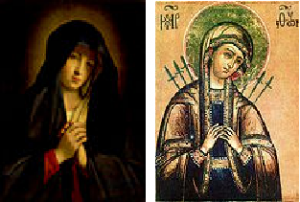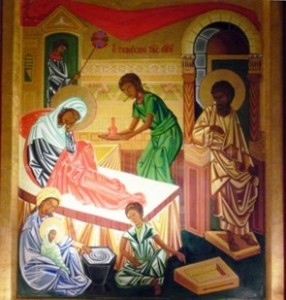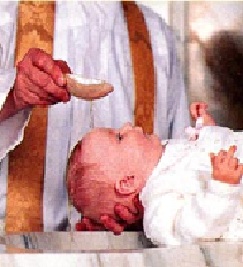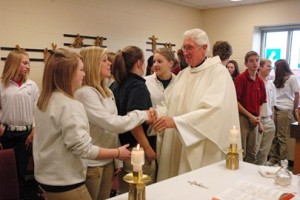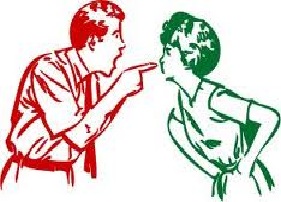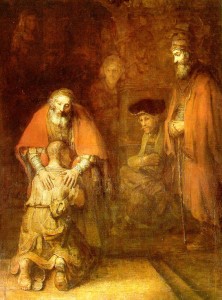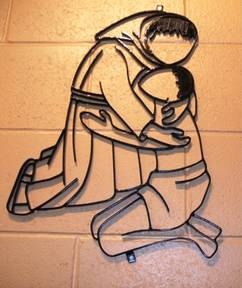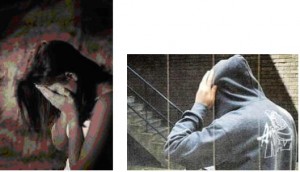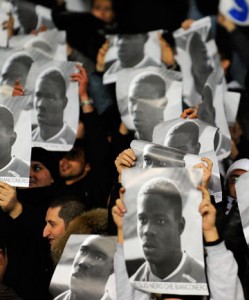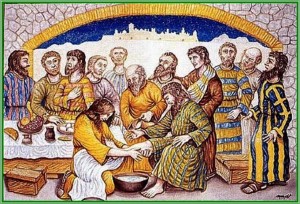The Catholic Church traditionally celebrates 7 October as the Feast of Our Lady of the Rosary; moreover, the whole of the month of October is also dedicated to the very same sequences of prayers and meditations to Our Blessed Lady, all part of the Church’s veneration of Mary, the Mother of God, and Mother of Our Saviour.
From early childhood, I remember the month of May as the Month of Our Lady, and October as the Month of the Holy Rosary. In those days, many years ago now, I think it true to say that we, as members of the Church congregations, used to recite the Rosary much more frequently than we do today, this change in use largely coming about with the changes and practices in the Church’s liturgy – not forgetting changes in our societies. Yes, of course, the Rosary still forms a very important part of our present-day devotions to Our Lady – I am sure that this is the case for most Catholics – but nowadays, these prayers, recognised as one of Our Lady’s favourites, are said mostly in small prayer groups, in the home as a family group, or perhaps just as an individual’s praise and supplication to Our Blessed Mother.
One cannot be certain as to the origins of the Rosary, but traditionally, it was attributably given to St. Dominic in an apparition by Our Lady, in the year 1214; this is said to have taken place at the Church in Prouille, located in France’s Languedoc region, and the apparition was then given the title of ‘Our Lady of the Rosary’. Over the ensuing centuries, Rosary devotions to Our Lady were strengthened by holy men and women; St. Alan of the Rock, Dominican priest and theologian established the ‘15 Rosary Promises’ and started many Rosary Confraternities; Dominic of Prussia, a Carthusian monk focused attention on these prayers by beginning the practice of meditating when saying the Hail Marys; he called it the ‘Life of Jesus Rosary’. In 1569, Dominican Pope, Pius V, officially established the devotion to the Rosary in the Catholic Church by introducing the Rosary and the feast of Our Lady of the Rosary to the Liturgical Calendar. Pope Leo XIII became known as the ‘Rosary Pope’, no doubt because of his frequent references to the Rosary; he issued twelve encyclicals and five apostolic letters on the subject, and it was he who added the title; ‘Queen of the most Holy Rosary’ to the Litany of Our Lady, and much more recently, Pope John Paul II placed the rosary at the very centre of Christian spirituality and called it “among the finest and most praiseworthy traditions of Christian contemplation”. In 2008, Pope Benedict XVI said: “It is one of the most eloquent signs of love that the young generation nourishes for Jesus and his Mother.” He added the rider that the Rosary is a meditation on all the important moments of our salvation history.
 |
Our Lady of Lourdes – Appearing with Her Rosary Beads
The Rosary (from the Latin rosarium, meaning ‘rose garden’ or ‘garland of roses’) is the name given to a ‘garland’ of beads, used to keep count of the repetitive series of prayers that make up the decades – each decade consisting of one ‘Our Father’, followed by ten ‘Hail Marys’ and a ‘Glory Be to the Father’. In most cases, there are beads for five decades set out on the garland, though some rosaries have been made to cope with the full traditional total of fifteen decades – the five Joyful Mysteries, the five Sorrowful Mysteries and the five Glorious Mysteries. In 2002, Pope John Paul II introduced the five (optional) Luminous Mysteries, bringing the present total of a full rosary to twenty Mysteries of the of the Rosary. Each decade is accompanied by a meditation of one aspect of the life of Christ, and when put together, they effectively add up to all the most important points in His, and Mary’s lives:
The Joyful Mysteries:
1 The Annunciation.
2 The Visitation
3 The Nativity.
4 The Presentation of Jesus in the Temple.
5 The Finding of the Child Jesus in the Temple.
The Luminous Mysteries:
1 The Baptism of Jesus in the Jordan.
2 The Wedding at Cana.
3 Jesus Proclaims the Kingdom of God.
4 The Transfiguration.
5 The Institution of the Eucharist.
The Sorrowful Mysteries:
1 The agony in the Garden.
2 The Scourging at the Pillar.
3 The Crowning with Thorns.
4 The Carrying of the Cross.
5 The Crucifixion and Death of Jesus.
The Glorious Mysteries:
1 The Resurrection.
2 The Ascension.
3 The Descent of the Holy Spirit.
4 The Assumption of Our Lady.
5 The Crowning of Our Lady in Heaven.
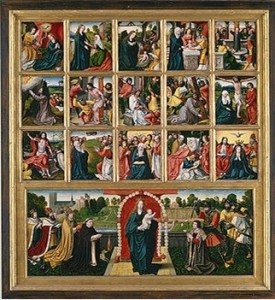 |
Picture Depicting the Fifteen Decades of the Rosary
(from the sixteenth century onwards, rosary recitations often involved ‘picture texts’ that assisted meditation)
To repeat and emphasize the point, if one takes into account the entirety of the 15 – 20 Decades, they set out all the main facets of the lives of Jesus and Mary, taking us from the Incarnation, through the Birth and Childhood of Jesus, his Ministry on this earth, to his Death, Resurrection and then to the inauguration of His Church and beyond – marking out for us all the precepts of our Faith. Mary, as we know is ever united with her Son, Jesus – she was always ‘at one’ with him – and if we give our hearts and minds to the saying of the Rosary, meditating on the mysteries the while, then we participate in the life of Mary, and through her, find our way to becoming one with Him also. Mary’s focus was always Jesus. Through Mary, we can come to focus on Jesus, also.
Many similar prayer practices exist in other Christian communities, each with its own set of prescribed prayers and its own form of beads. The Rosary is used by other Christian denominations, e.g. Anglicans. In these more modern times, they have also found their usefulness in other directions – not just for use in connection with the 15-20 Mysteries, as tradition dictates – but also to assist with other series of repetitive prayers e.g. in the reciting of the Prayers for Divine Mercy. And one further point may well be worthy of note, and this concerns the Crucifix, the two large beads and three smaller beads, all of which are ‘added’ on a ‘short strand’ to the beads for the five decades, on most Rosaries. My humble experience tells me that this adjunct may not be used, perhaps, quite so much as the main ‘garland’ and their main purpose may have escaped the notice of many.
 |
A 16th Century Rosary from the wreck of the ‘Mary Rose’ and modern Rosary in sterling silver
On this ‘short strand’, we should recite the ‘Apostle’s Creed’ at the Crucifix, an ‘Our Father’ at the first large bead, three ‘Hail Marys’ on the next three beads (for faith, hope and charity), then a ‘Glory be to the Father’ on the next large bead. We then progress to the praying of the decades.
Our Lady of the Rosary – Pray For Us
In e-mailing the blog, ‘Word Press’ tends to distort the original formatting of the document. Readers may prefer to visit the website www.stmarysblog.co.uk to read it in its original format.
